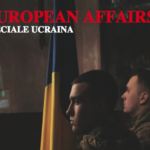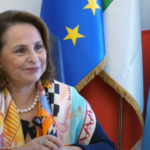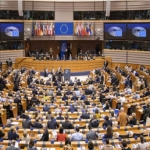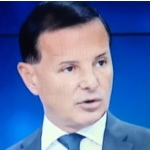Greece has become the main European route for migrants, especially for Syrian and Iraqi refugees. In the last two months, they has taken advantage of Turkish borders pass. Aegean Islands is the first step to reach Eu, passing along Balkan route: 244 855 people have transited from Turkey to Greece since January. To speak about this humanitarian emergency, European Affairs has interviewed Constance Theisen, Msf Humanitarian Affairs Officer in Greece, who has talked about Ngo’s activity there, like medical care and basic needs to migrants.
[subscriptionform]
[level-european-affairs]
What’s Msf activity in Greece?
“Our aim in Greece and along the Balkan route (we also work in Serbia) is to try and cover the immediate needs of the migrants and refugees arriving, where needed:
- Lesvos Island: Water and sanitation in Kara Tepe camp and Moria informal camp. Two medical teams for mobile clinics in the camps and in Mytilene town and harbor, where people are sleeping outside. Mental health support with one psychologist. Bus service from the North of the island to the south so that people don’t have to walk the 65km in the sun;
- Kos Island: Shelter, water and sanitation in Captain Elias camp. one medical team for mobile clinics in Captain Elias camp and anywhere in Kos town where people sleep outside. Mental health support with one psychologist. Distribution of non-food-items: kit with blanket, torch, toothbrush, toothpaste, energy bars;
- Dodecanese Islands: one medical team based on a boat for mobile clinics in the islands of Simi, Leros, Tilos, Kalymnos. Distribution of non-food-items: kit with blanket, torch, toothbrush, toothpaste, energy bars. Support in all islands of local activists and municipalities with shelter (tents of shadow nets) to create space where people can sleep;
- Athens: we have a project to help people who have suffered ill treatment (torture…) with medical and psychological support and a social worker;
- At the Northern border between Greece and Macedonia: we work at the crossing point of Idomeni, where people will travel to their final destination through the Balkan cross into Macedonia. one medical team for consultations, one psychologist and we installed toilets and showers. Our team also distributes non-food-items: kit with blanket, torch, toothbrush, toothpaste, energy bars. “
Is Greece a real point of passage towards especially Germany, Sweden and Norway?
“Greece has now become the main point of entry to Europe: 244 855 people have arrived there so far (crossing the Aegean Sea from Turkey) versus 119 500 arrivals in Italy (UNHCR numbers 08/09/2015). “
What’s Greece government’s behaviour towards refugees?
“The Greek government has shown no leadership to respond to the crisis in a constructive manner. The only way to fix the problem of so many people arriving in the islands, forced to sleep outside for days before the local police can register them and give them the paper needed to leave the island, is to have more police sent to the islands to register the people arriving and reception/transit camps in all islands where people arrive. Instead, the Greek authorities have sent more riot police to the islands (not meant to register people) and have not shown any initiative to identify spaces (fields, stadiums…) where long-term reception can be organized for the people arriving. They have disregarded its responsibilities: no distribution of food organized in most islands (Kos, Leros, Simi, Kalymnos) or insufficient in all others (Lesvos for instance). And they have abused migrants with excessive use of police force (in 2 days in Lesvos last week, our medical team treated more than 10 people who reported being beaten by the police). “
In yours point of view, what’s differences with Italian government?
“I can not speak for the Italian system as I do not know it very well, but I believe that Italy has put in place a national system of reception, in accordance with EU standards, providing 2 things: upon arrival a medical screening and vulnerability screening to all people arriving ; shelter (centers) all over the country, providing also food.
Instead, in Greece:
- No systematic medical screening (not a single island provides it);
- No systematic screening for vulnerabilities (not a single island provides it);
- No shelter (except in some places on Lesvos and Chios islands);
- No systematic provision of food;
No access to hygiene facilities (except in some places on Lesvos and Chios islands). “
How are land routes prefer more than sea routes?
“The route for Syrians to reach the EU has changed. Why: current situation in Lybia; visa restrictions to Syrians traveling to Egypt; more and more difficult stay in Jordan, Lebanon and Turkey (see UNHCR reports on access to protection, services and to the local job market there). Once in Greece, since controls in the airports have increased, more and more people chose the land route through the Balkan to reach their final destination. “
What are yours statistics of 2015?
Consultations until July 31st:
- 3236 in Kos;
- 437 in the neighbouring Dodecanese Islands;
- 3000 in Idomeni.
Kits distributed until July 31st: more than 20 000 all over the country. “
Giacomo Pratali
[/level-european-affairs]







